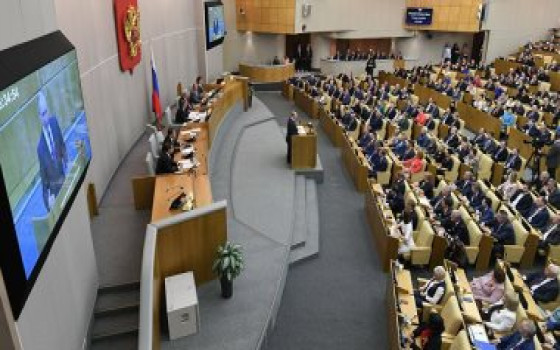
Frozen Russian assets in the European Union, worth 260 billion: Adopting a decision to allocate exceptional revenues and prohibit the disposal of net profits.

- Europe and Arabs
- Tuesday , 13 February 2024 11:6 AM GMT
Brussels: Europe and the Arabs
The Council of States of the European Union adopted a decision and a regulation clarifying the obligations of Central Securities Deposits (CSDs) holding assets and reserves of the Central Bank of Russia (CBR) that were frozen as a result of the restrictive measures imposed by the European Union. According to a European statement issued in Brussels yesterday evening, Monday, after Russia launched its large-scale, illegal and unjustified invasion of Ukraine in February 2022, the European Union decided, in coordination with international partners, to ban any transactions related to the management of reserves as well as the assets of the Russian Central Bank. As a result of this ban, relevant assets held by financial institutions in EU Member States have become “frozen”.
The decision, which is in line with the G7 position, clarifies the prohibition of such transactions as well as the legal status of revenues generated by central securities depository operations in connection with the holding of frozen Russian assets and sets clear rules for entities holding them. In particular, the Council decided that central depository companies holding more than EUR 1 million of assets of the Russian Central Bank should account for extraordinary cash balances accumulated due to EU restrictive measures separately and should also keep corresponding revenues separate. In addition, central securities depository companies are prohibited from disposing of the resulting net profits.
The European statement explained that, in light of the risks and costs related to the possession of the assets and reserves of the Central Bank of Russia, each central guarantee depository may request its supervisory authority to allow the release of a share of these net profits in light of compliance with capital and legal risk management requirements.
This decision paves the way for the bloc's Council of States to decide on the possibility of establishing a financial contribution to the European Union budget collected from these net profits to support Ukraine, its recovery and reconstruction at a later stage. This financial contribution could be channeled through the EU budget to the Ukraine Facility for which the Council and the European Parliament reached an interim agreement on 6 February 2024.
In their statement of 6 December 2023, the G7 leaders stressed that decisive progress was needed to channel extraordinary revenues held by private entities and stemming directly from frozen Russian sovereign assets to support Ukraine.
In its conclusions of 14 and 15 December 2023, the European Council reiterated its firm condemnation of Russia's war of aggression against Ukraine, which constitutes a clear violation of the UN Charter, and reaffirmed the European Union's firm support for Ukraine's independence, sovereignty and territorial integrity. Within its internationally recognized borders and its inherent right to self-defense. The European Council further reiterated its call for decisive progress, in coordination with partners, on how to channel extraordinary revenues held by private entities and arising directly from frozen Russian assets to support Ukraine's recovery and reconstruction, consistent with applicable contractual obligations, and in accordance with European Union law. And international law.
About €260 billion of the Russian Central Bank's assets in the form of securities and cash have been frozen in the jurisdictions of the G7 partners, the European Union and Australia, with more than two-thirds of those frozen assets in the EU.












No Comments Found